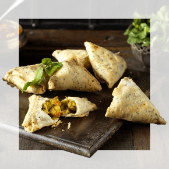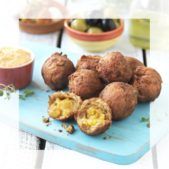There’s no doubt that plant-based diets are on the rise and with 1st October marking World Vegetarian Day, it seems there’s a variety to suit every taste.
Broadly speaking, vegetarianism is an abstinence from meat and by-products of animal slaughter. Veganism extends this to all animal products including eggs and dairy. In between there are various versions concerning the consumption or not of fish, insects and even some vegetables.
The first record of a vegetarian lifestyle is in India 3,000 years ago as part of the ancient religion of Jainism which preaches non-violence to all creatures. Monks were forbidden to walk on grass for fear of harming insects and root vegetables shunned as unearthing and eating them can kill micro-organisms.
In China, Buddhism and its advocacy of non-violence also led to a vegetarian lifefstyle. As with Jainism, some Buddhists also include certain vegetables on the avoid list, though for a different reason. Members of the allium family such as garlic, onions and leeks are shunned as the odour can offend fellow believers at prayer. It is also held that eaten raw these plants can make you irritable and cooked arouse passion – neither of which are conducive to peaceful meditation.
Schoolchildren throughout the land will be well versed in Pythagoras theory, with the ancient Greek coming up with a solution to maths problems still in use today.
However, you may not be aware that Pythagoras was portrayed as a vegan and this led to people of a similar persuasion being dubbed Pythagoreans across the English-speaking world.
It wasn’t until the mid-19th century that the term vegetarian was coined and the first vegetarian society was formed, with one of the earliest groups emerging in the completely inappropriately named London suburb of Ham.
If the roots of vegetarianism lie in religion, the belief it offers a healthier and more sustainable lifestyle has gathered support and added to the numbers in more recent times with mounting evidence to suggest vegan products are entering the mainstream.
A survey by Mintel released this month reveals nearly one third of shoppers in Britain opt for plant-based milk as opposed to dairy. Oat milk was most popular, with soya, almond and rice milk also attracting support in a market now worth £146m a year.
If you opt for plant-based food because of religious, ethical, taste or health reasons – or simply because you fancy a change – food labelling regulations ensure shoppers can now generally tell at a glance whether products are vegan.
And, whether it’s a delicious vegetable samosa or a spring roll, a falafel or a hash brown, remember SK offers a world of options when it comes to meat free choices.
Spring Roll
Ingredients:
- 50g grated carrot
- 50g beansprouts
- 50g diced red pepper
- 1 spring onion, finely chopped
- Ready made filo pastry
- Chilli sauce for dipping
Method:
Preheat the oven to 220C/Gas 7. Line a baking tray with greaseproof paper.
Mix the carrot, beansprouts spring onion, red pepper and sweet chilli sauce together in a bowl.
Lay a piece of filo pastry on the work surface in a diamond shape. Brush with a little oil, then cover with another piece of pastry. Brush with more oil.
Spoon one-quarter of the filling onto the corner nearest you. Fold this corner towards the centre and tuck it under the filling. Fold the two outside corners in towards the middle so it looks like an envelope. Brush with oil, then roll up the pastry to look like a sausage. Repeat with the remaining mixture and pastry.
Bake in the oven for 15-20 minutes, or until crisp and golden-brown.
About Oliver Parkinson
Sous Chef of SK Foods.
Your food. Our Passion.






